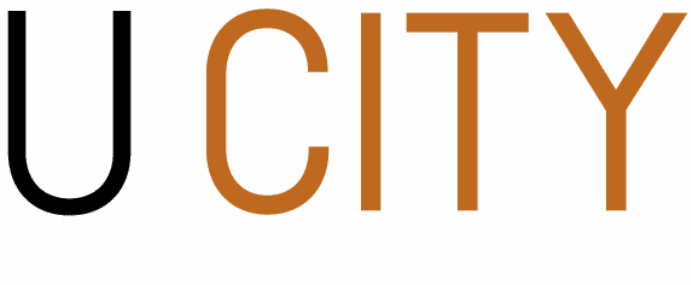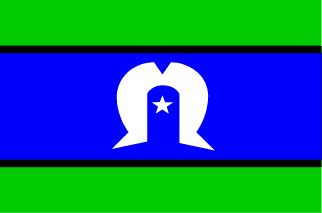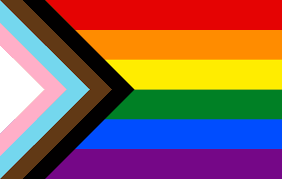UnitingCare Wesley Adelaide Inc and Uniting Church of South Australia
Joint Submission to the Commonwealth Contribution to Former Forced Adoption Policies and Practices 2011 Inquiry - Senate Standing Committee on Community Affairs
Introduction
The Uniting Church in South Australia and UnitingCare Wesley Adelaide Inc appreciate the opportunity to provide comment into the Senate Community Affairs Committee’s inquiry into the Commonwealth contribution to former forced adoption practices.
Our submission begins with a description of the historical information about the Kate Cocks Memorial Babies home – an adoption service provided in South Australia firstly by the then Methodist Church and subsequently by Kate Cocks Memorial Babies Home Inc . The paper also describes the context in which that service and other adoption services operated at the time.
This submission makes an unreserved apology to the mothers who may have been forced to give their children to adoption and to children who may have been separated from their mothers through forced adoption by practices within the Kate Cocks Memorial Babies Home Inc.
Finally our submission supports the current Parliamentary Inquiry and advocates for the provision of specific support services for parents and adopted children.
Kate Cocks Memorial Children’s Home
The Kate Cocks Memorial Babies Home operated from 1937 – 1976. It was also known as:
Methodist Home for Babies and Girls
Methodist Babies Home at Brighton
Kate Cocks Memorial Babies Home
Kate Cocks Memorial Girls Home.
The home was run by the Home Missions Department of the Methodist Conference 1937 to 31st May 1944. It was then run by two separate associations established by the Methodist Church known as The Kate Cocks Memorial Girls Home Inc and Kate Cocks Memorial Family Services Inc (formerly Kate Cocks Memorial Babies Home Inc) until 1976. The Kate Cocks Memorial Babies home included the Wyld Maternity Hospital which opened in 1952.
In 1975 the two associations became part of the activities conducted by Adelaide Central Mission Inc. In 1976 the home ceased as an institution for children but continued as a day care centre. The Kate Cocks Home officially discontinued its involvement as an adoption agency in 1978.
While our records are incomplete we do know that during the first fifteen years of the operation of the home by Kate Cocks 1500 babies were cared for out of which 560 were adopted.
The Synod of the Uniting Church in South Australia is the state based administrative body of the Uniting Church. Its precursor is the Methodist Conference in South Australia which established the Kate Cocks Memorial Babies home Inc and Kate Cocks Memorial Girls Home Inc.
UnitingCare Wesley Adelaide Inc. is a social service provider to disadvantaged people in South Australia. UnitingCare Wesley Adelaide is an outreach of the Uniting Church in South Australia and was previously known as Adelaide Central Mission Inc.
Unfortunately no admission records have survived from the Kate Cocks Memorial Children’s Home. Most records were destroyed by a fire. Remaining records were transferred to the Department of Community Welfare which we understand have not been retained. The only surviving records are board of management minutes of meetings. These records don’t include a description of the way the agency went about conducting adoptions. It doesn’t make any direct reference to the specific adoption practices used during Kate Cocks Homes involvement as an adoption agency. As such it is not possible from the documents still available to determine how adoptions were managed or which women and children had come in contact with the Home.
What we are able to do is infer from the texts the practices in place during periods in which the Home operated as an adoption agency. Below is a record from 1954 where we hear the language of shame around having a child out of wedlock and as a consequence that some children are adopted out, while some stay and others go home with Mum.
‘Of the sins in this world a babe out of wedlock is not the worst, but the young mother carries the whole burden, often in the face of resentful intolerance. It is to help her through the difficult time and to make it possible for a new start and a second chance that the Methodist Home for Girls exists. Worked in conjunction with the Babies’ Home and with the facilities of the Wyld Maternity Home, the girls live normal lives under careful supervision; and the babes make their appearance with the help of qualified staff and doctors. It is not for these tiny people to bear the burden of their parents’ wrong-doing and whether they go home with the mother, stay on in the Babies’ Home, or are adopted into new families, their first few weeks are spend under their mothers’ care, and Matron’s supervision. Fifty girls have passed through the Home during the year.’
Women’s Welfare Department Annual Report – Methodist Conference – 1954 PR 9/38
Social Context
While we don’t have any specific client records from the Kate Cocks Memorial Babies Home we are aware of the practices of dealing with children which were common across government and non government institutions which worked with children and mothers during this period.
Those practices can be seen in two similar events during the same time period. The systematic forced removal of Aboriginal children from their families (Bringing them Home - Stolen Generation Report) which deeply traumatised children and their families- and the neglect and trauma of children and young people who were placed in institutional care (The Forgotten Australians Report). At the time society had what could best be described as a paternalistic approach to the welfare of women and children. This same social milieu also surrounded adoptions practices of the day.
Paternalism
Children’s homes were institutions which were intended to provide shelter, education and security for children without parents or guardians or in circumstances where parents experienced difficulties in managing the care of their children. The historic record of Kate Cocks describing the establishment of the home provides us with a specific example of Cock’s view of unwed mothers.
“It was proposed that a small cottage home be established for young women whose moral weaknesses have led them into difficulties from which they are unable to extricate themselves without some competent spiritual and material assistance, and which may necessitate their remaining hidden from the public for a time, or a severance from undesirable environment and influences”. (Kate Cocks quoted in Mission Story, Ivor Bailey May 1987 p.50.)
Unwed mothers were considered immoral and incompetent to decide the future for themselves and their child. Their position rendered them unable and unfit to act on behalf of themselves and their child.
In this environment the adoption service provider, instead of the mother was considered to ‘know what was best’ for the child.
Secrecy and shame
Adoption was treated as a secret and shameful act by the community. The Kate Cocks Memorial Babies home existed so that unwed pregnant mothers could be removed from society until they had given birth. From its establishment the Kate Cocks Memorial Babies home operated in a broader social context in which adoption services were considered to be secret and shameful events in a mother’s life.
It was also thought that the secrecy surrounding the service would prevent the adopted child from finding his or her way back to their birth mother.
Impact of Past Practices on Children and Parents
There is no documented evidence available as to whether or not forced adoptions were part of the experience of birth mothers and their children at Kate Cocks Memorial Babies Home Inc.
The Synod of South Australia and UnitingCare Wesley Adelaide note that the Senate Inquiry has received stories from children and parents who were adversely impacted by practices of forced adoption.
From these stories we have been made aware of the deep grief and loss felt by mothers who have lived their lives without a connection to their children.
Through these stories we have also become aware of the trauma experienced by children who have lived their lives isolated from their birth mothers and their birth families.
We recognise that many adoptees believe they were rejected by their birth mothers. This rejection has a profound impact for the whole of their lives.
We believe that a program of education for the general public about the social environment and the actions of adopting services will provide an opportunity for understanding and healing for adoptees.
We also recognise the difficulties faced by adoptive parents who were encouraged not to tell their children that they were adopted. This contributed to the secrecy which surrounds adoption and damaged the trust between adopted children and their adoptive parents.
Apology
If mothers involved in the Kate Cocks Memorial Babies Home were coerced or forced to give their children up for adoption we unreservedly apologise to those affected.
If children involved in the Kate Cocks Memorial Babies Home were forcibly removed from their parents we unreservedly apologise to those affected.
The Inquiry
We fully support the national inquiry into past adoption practices as it works to shed more light on past practice and the harm caused.
The inquiry provides a way to deal with the injustice of forced adoption practice. It also significantly contributes to the journey of healing for those affected by forced adoption practices.
We encourage Commonwealth and State Governments to put in place measures to support those affected by past acts as was the case with the Forgotten Australian’s Inquiry and recommendations. These measures should include consideration of how a comprehensive package of support services can be made available to those who have suffered as a result of the practice of past forced adoptions. It is essential that such assistance is provided in a manner which is non stigmatising and readily accessible to all who could benefit from it and that it is independent from those agencies which may have engaged in forced adoption practices. Furthermore, as has been the case for those who were part of the ‘Stolen Generation’ and ‘Forgotten Australians’ experience, it is important that an official recognition and apology is made on behalf of the Government at both a Commonwealth and State and Territory level.
We invite any person who was a resident at Kate Cocks Memorial Children’s Home to make contact with us, by writing to Chief Executive of UnitingCare Wesley Adelaide, 43 Franklin St, Adelaide 5000, or by ringing 8202 5886.






